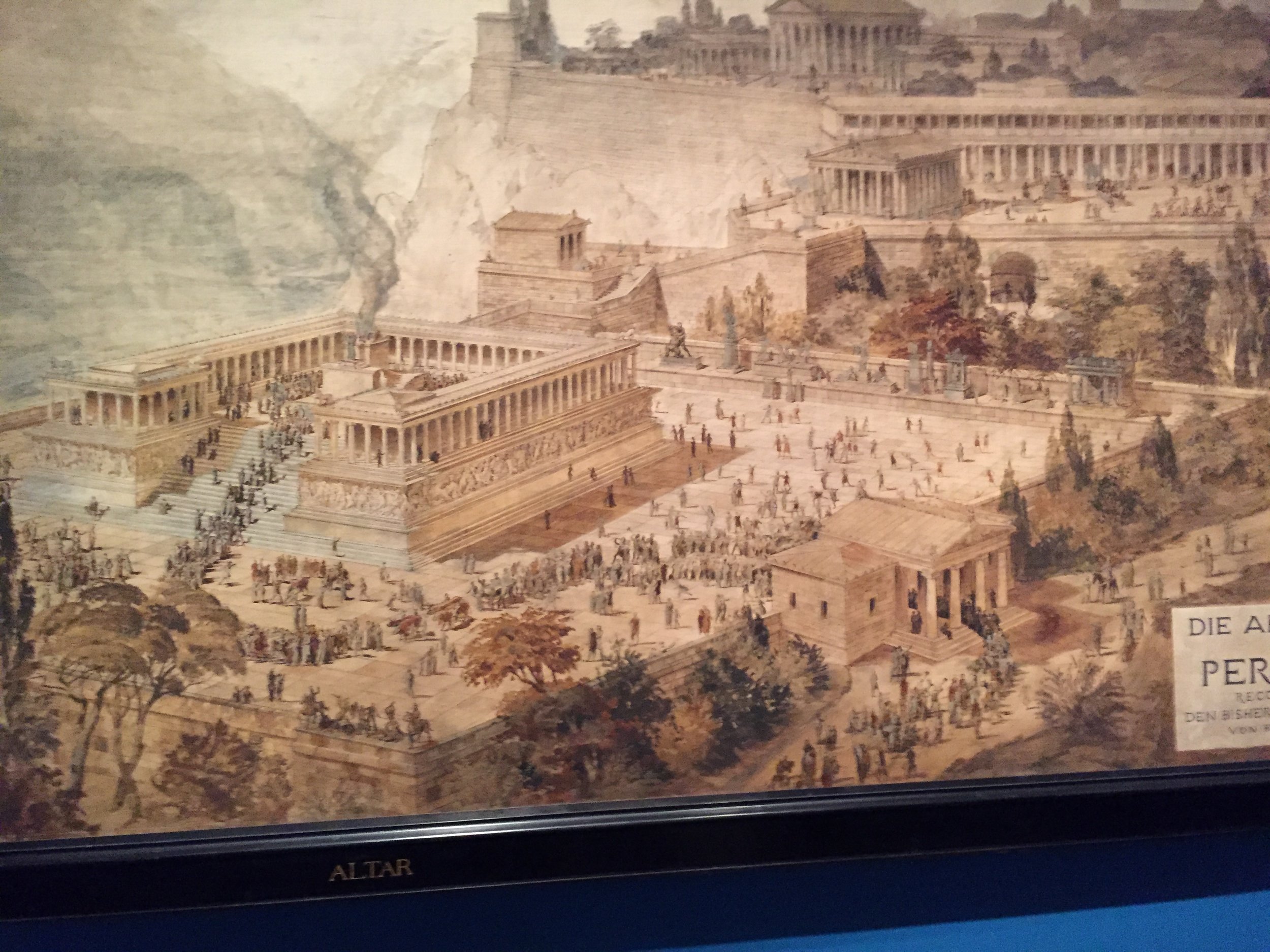 To enter the Metropolitan Museum of Art you walk across the David H. Koch Plaza to the museum’s entrance, which stirs questions about the relationships of art and money and power. Such questions resonate forcefully at the current Pergamon show, whose 264 works of art span the classical world from the reign of Alexander the Great (336-323 BC), whose empire stretched from India to Gibraltar, to the suicide of Cleopatra three centuries later.
To enter the Metropolitan Museum of Art you walk across the David H. Koch Plaza to the museum’s entrance, which stirs questions about the relationships of art and money and power. Such questions resonate forcefully at the current Pergamon show, whose 264 works of art span the classical world from the reign of Alexander the Great (336-323 BC), whose empire stretched from India to Gibraltar, to the suicide of Cleopatra three centuries later.

Pergamon, once a major city in Asia Minor, known for its massive altar and a library that rivaled Alexandria’s, disappeared over a history of conquests and sackings until its buried remains were discovered and excavated in the late-19th century. Some of the works of stone and metal are intact, but most are fragmented, the remnants of a civilization that vanished. The artworks exalt the deeds of the powerful – and enable their subjects to bask in the reflected glory. Later, as the growth of empire produced unprecedented wealth, the newly rich commissioned private pieces that, while wondrously crafted, seem devoid of meaning beyond the decorative.
I saw little hint of art as subversive of power – no Guernica to question the glory of the empire or reveal the suffering of ordinary people. And yet the monuments of Pergamon, with their the smashed noses and broken torsos, ultimately capture, not the immortality of the rulers but the evanescent ambitions of men.
Ozymandias
I met a traveller from an antique land
Who said: “Two vast and trunkless legs of stone
Stand in the desert . . . Near them, on the sand,
Half sunk, a shattered visage lies, whose frown,
And wrinkled lip, and sneer of cold command,
Tell that its sculptor well those passions read
Which yet survive, stamped on these lifeless things,
The hand that mocked them, and the heart that fed:
And on the pedestal these words appear:
‘My name is Ozymandias, king of kings:
Look on my works, ye Mighty, and despair!'
Nothing beside remains. Round the decay
Of that colossal wreck, boundless and bare
The lone and level sands stretch far away.
Percy Bysshe Shelley, 1792 - 1822





